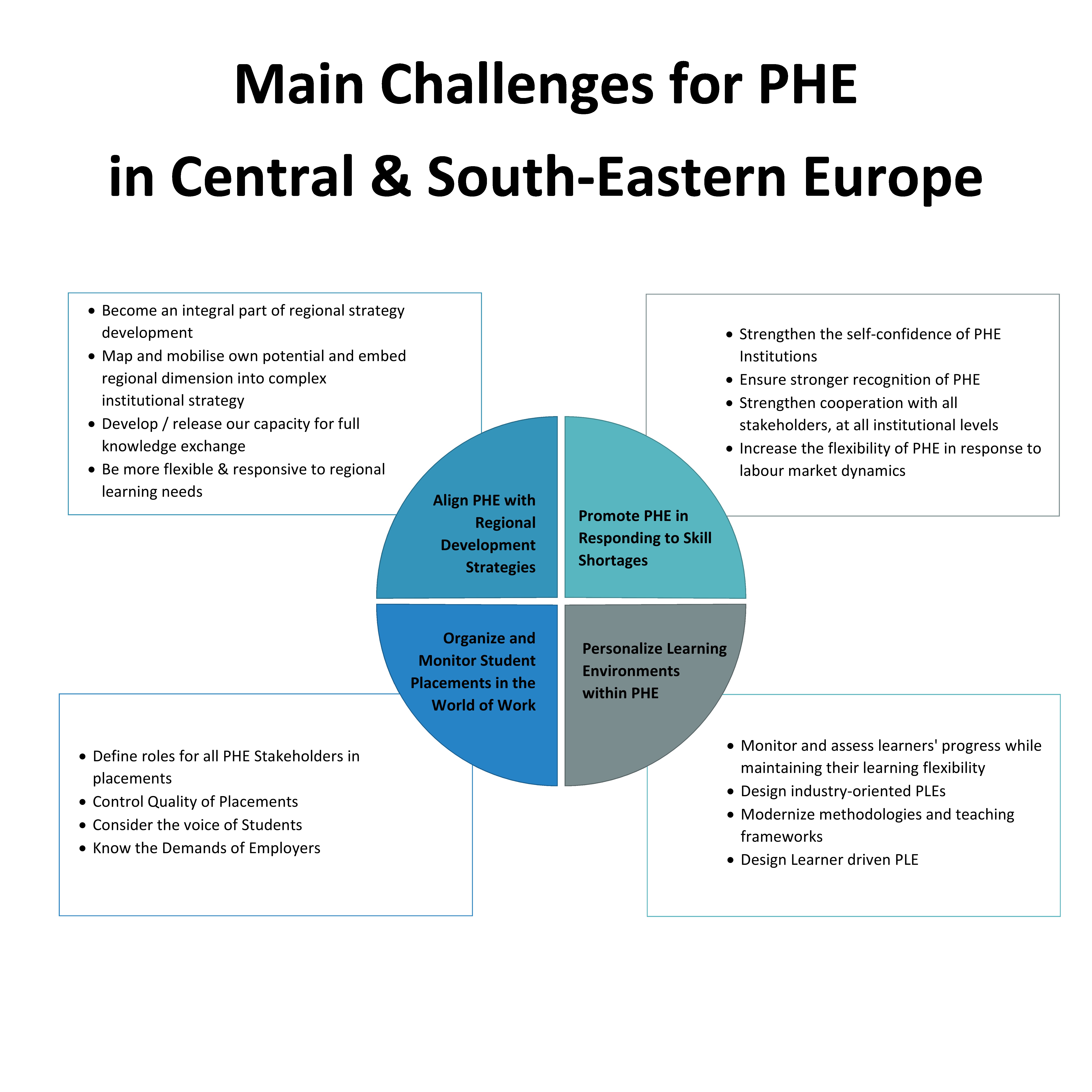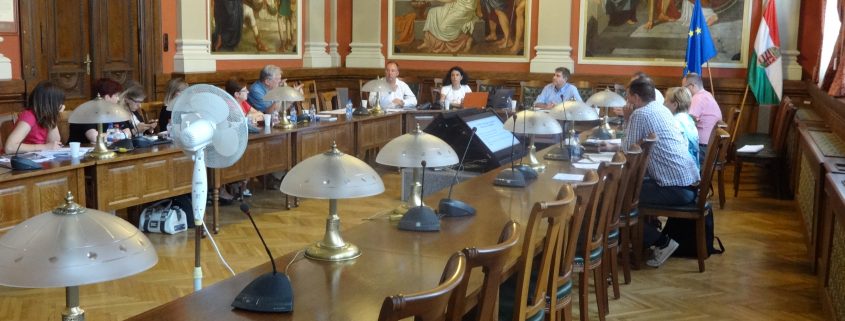CALL FOR EXTERNAL EVALUATION
CALL FOR EXTERNAL EVALUATION
PROCSEE PROJECT
Background
The Professional Higher Education Excellence Central and South-Eastern Europe (PROCSEE) project is a policy-oriented project, aimed at strengthening the provision of professional higher education, by strengthening the policy-work conducted by umbrella organizations representing professional higher education institutions in Central and South-Eastern Europe (CSEE), specifically in Slovenia, Romania, Croatia, Czechia and Hungary. The PROCSEE project partners and experts have been working together since 2015, with the project ending in 2019, to provide specific policy inputs on how to address the following priorities in each participating country as well as throughout the CSEE region:
– Identify the main challenges facing the Professional Higher Education (PHE) in the region
– Propose policy solutions to address those challenges in the short-to-midterm, through a mixture of good practice identification and stakeholder consultation
– Bring together the main actors in PHE in each participating country to build implementation roadmaps for the identified policy solutions
Aim of the Evaluation
This external evaluation is supposed to analyze and evaluate the impact of the Pro-CSEE Project Approach on the country levels.
Deliverables
Review of the PRO-CSEE Approach – Evaluation Report, which will consist of 2 parts:
1) The first will consist of an external review, which will evaluate the effectiveness of the PRO-CSEE approach to policymaking, by conducting interviews with project participants, members of the expert groups, the national committees and various decision/policy-makers. Specifically, all stakeholders will be asked to assess, (a) if the recommendations were SMART (i.e. Specific, Measurable, Achievable, Relevant and Time-Bound), (b) the likelihood they will implement all or some of the recommendations in the short to mid-term.
2) The second will contain reporting of the activities engaged in by the national committees in WP3, and an analysis of these activities on the national policy environment, authored by the relevant project partners.
Methodology
The external evaluator will propose evaluation scheme and concrete evaluation criteria; cooperate with all project stakeholders to collect necessary information, and thus evaluate whether the overall project approach is viable and functioning. Namely:
– Conduct interviews with stakeholders and decision/policy-makers to evaluate whether the PRO-CSEE approach was successful in stimulating policy dialogue, and proposing realistic, efficient and effective problems to precisely defined challenges.
– Take stock of national-level activities
– Report on the progress in achieving success-indicators of the PROCSEE project
Requirements
Education evaluation experience
Auditing experience
Project evaluation experience
Proficient in English
Conditions and Application Process
The external evaluator will be selected through an open call for applications.
Estimated contract length is 12 days at an approximate rate of €250 per day, for a total maximum brutto budget of €3000.
Experts interested in applying should send a CV together with a cover letter, indicating their experience in line with this call by end 7th of May.
For further information, please contact Ms Iva VOLDANOVA, responsible for this action at the project at iva.voldanova@ssvs.cz







